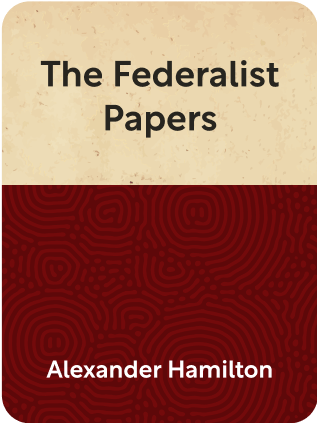

This article is an excerpt from the Shortform summary of "The Federalist Papers" by Alexander Hamilton. Shortform has the world's best summaries of books you should be reading.
Like this article? Sign up for a free trial here .
What is federal overreach? How did concerns about it shape the Constitution and The Federalist Papers?
Federal overreach is the idea that the federal government may be able to exert power inappropriately. The Federalist Papers aimed to address concerns about the risk of federal overreach.
Read more about the issue of federal overreach and the Constitution.
The Unlikelihood of Federal Overreach
Most of the federal powers outlined in the Constitution were already granted to it under the Articles of Confederation. What the new framework did was give the federal government the ability to effectively administer those powers.
The very nature of state-based representation in the national legislature made it highly unlikely that the federal government could ever overpower the states. Both houses of Congress would be composed of representatives who, because they would owe their political careers to the people and legislatures of their states, were likely to be highly loyal to their states. They would strongly resist any federal encroachment on their state’s power (just as members of state legislatures were highly loyal to and protective of their towns and counties).
The existence of a strong political union itself rendered fear of federal overreach highly dubious. Just as the size and unity of the colonies had helped them resist the British during the Revolutionary War, so would the states—bound together in the Union—be able to push back any encroachment at the national level. Any federal army would be dwarfed by the size of the combined state militias and powerless in the face of the loyalty of the people to their states.
The Exercise of Power
The Articles had actually already granted most of the same powers to the federal government that the new Constitution proposed to. The difference was that the Articles gave the federal government no effective tools by which to exercise those powers, because the states were too strong. The result was a federal government that was forced to go outside the bounds of law to secure the public good.
Surely, a lawless government was the opposite of what everyone wanted. But, paradoxically, by constraining the hands of the federal government, the Articles of Confederation had left the Union no choice but to undermine the law in its pursuit of the goals that any government would seek to achieve.
The new government would not be perfect, because it was created by imperfect human beings. But perfection was the wrong standard by which to judge it. It should instead be judged in comparison to the existing, clearly inadequate government. And on this count, the new government would represent a significant improvement.

———End of Preview———
Like what you just read? Read the rest of the world's best summary of Alexander Hamilton's "The Federalist Papers" at Shortform .
Here's what you'll find in our full The Federalist Papers summary :
- The genius of the founding fathers in how they designed the United States Constitution
- Why it was critical for the United States to form a union rather than stay separated as colonies
- How Alexander Hamilton anticipated social issues that are still relevant today






